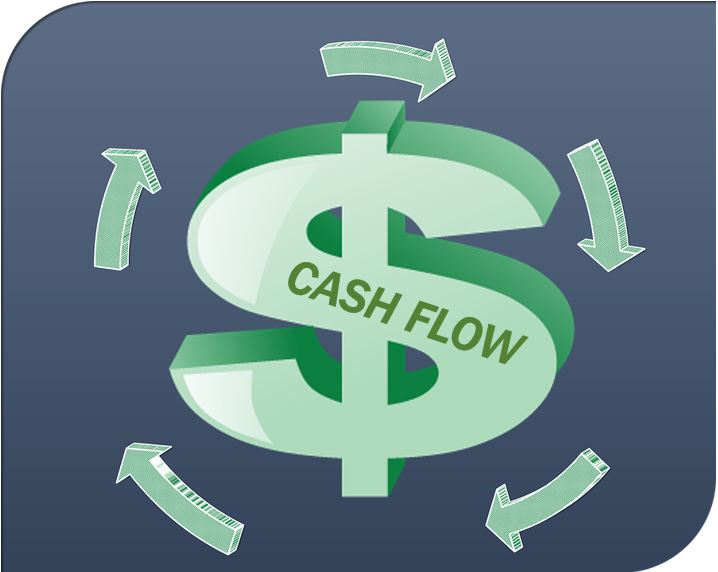 When most people start businesses, they think primarily about the revenue-generating potential or profitability of the business model. But while these concepts are important, there’s a sneakier, and even more vital financial component of your business that you’ll need to consider: cash flow. Cash flow refers to the movement of money being transferred into and out of your business, and it can make or break your entire organization.
When most people start businesses, they think primarily about the revenue-generating potential or profitability of the business model. But while these concepts are important, there’s a sneakier, and even more vital financial component of your business that you’ll need to consider: cash flow. Cash flow refers to the movement of money being transferred into and out of your business, and it can make or break your entire organization.
In fact, it’s possible for a business to go under due to poor cash flow, even if it’s profitable on paper. If you don’t have enough liquid cash to pay your vendors and employees, it doesn’t really matter how much revenue you’ve generated, or how many customers you have.
Fortunately, there are some easy strategies you can use to improve your business’s cash flow.
Take Cash Flow Seriously
Your first step is a simple, but important one: take cash flow seriously. Cash flow has the most destructive potential when it’s being ignored by a business leader. If you acknowledge cash flow as important, you’ll have plenty of warning when yours is in dangerous territory, so you’ll have ample time to act.
Designate someone to be responsible for monitoring and managing the cash flow of your organization, typically in the accounting department. Create a documentation and monitoring process for improving your cash flow, and make sure it’s executed properly. Ideally, you’ll report on cash flow on a weekly basis.
Improve Your AR Practices
Next, you’ll want to take measures to improve your accounts receivable processes. This is where most stable businesses start to experience cash flow issues. If there’s an issue with when or how you invoice your customers, or how you follow up with them, it’s going to restrict how much cash you have coming in—even if it’s a significant amount of money on paper.
You can start here by refining your invoicing process. Make sure you have a team issuing invoices in a consistent and timely manner, ideally immediately after services are rendered. Depending on your company’s needs and industry, you should probably assign tight terms to your invoices for new customers—something like net-10 terms. If you run a credit check on your customers first, you may be able to afford more flexible terms.
If a company doesn’t pay you within those terms, you need to have a standard follow-up practice in place; you can’t afford to wait and hope they eventually make a payment. Reach out via email with a polite, but firm reminder that the invoice is due, preferably immediately after the due date has passed. If that doesn’t work, follow up with a phone call. Continue this process of escalation, remaining polite but firm, until you get an answer. If the customer can’t pay, try to work out a deal with them that still provides you with immediate cash. If you can’t reach the customer, you may consider taking legal action or working with a collection agency.
Delay Your Payments
On the other side of the equation, you can help keep more cash in your business by delaying your outgoing payments for as long as possible. For example, if you have an invoice due in 30 days, don’t pay it immediately. Instead, wait the full 30 days and pay it at the last minute. As long as there aren’t any financial penalties for doing so, this will keep money in your bank accounts longer, and provide you with more financial flexibility.
Open a Line of Credit
You could also open a business line of credit, which acts as a kind of floating loan. You can borrow money as you need it against this loan, usually up to several thousand dollars (or more, if your business has a good credit history), and pay it off when you can. It’s not something you should lean on consistently, but it can help you get through a particularly challenging period—like when you’re waiting on a massive batch of invoices to be paid.
Refine Your Financial Habits
Cash flow can benefit from improvement in many different areas of financial management, so make sure you’re thoroughly auditing and improving those habits. For example, avoid buying things superfluously or without consulting your business’s budget, and be mindful of the profitability of the jobs you take on. The better your overall financial systems, the better your cash flow will be.
Bad cash flow can kill a business even if it’s doing well on paper, but it still gets neglected by many new entrepreneurs. Fortunately, all you need is a good cash flow statement and a few tweaks to your accounting processes to make sure your cash flow stays in check. The more you get used to managing it, the easier it will become.

